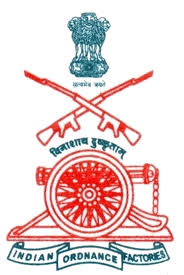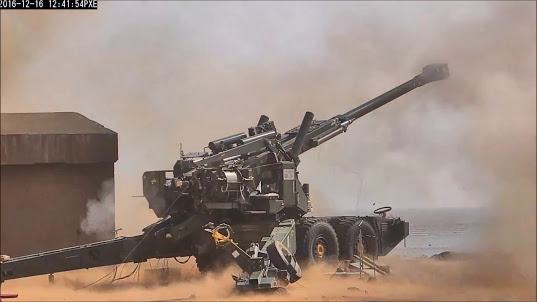
The Empowered Group of Ministers (EGoM) headed by Defence Minister Rajnath Singh set up on September 11 indicates government’s resolve to fulfill the longstanding need of corporatising the Ordnance Factory Board (OFB). Three government-appointed committees had examined this issue in the past: TKA Nair Committee (2000) that recommending converting OFB to Ordnance Factory Corporation Limited; Vijay Kelkar Committee (2006) that recommended corporatisation of OFB with ‘Nav Ratna’ status, like BSNL, and; Vice Admiral Raman Puri Committee (2015) that recommended corporatising OFB and splitting it into three-four segments specialising in distinct area like weapons, ammunition and combat vehicles.
Previous attempts to corporatise the OFB did not succeed because of stiff opposition from workers unions like Indian National Defence Workers’ Federation (INDWF) affiliated to Congress, All India Defence Employees’ Federation (AIDEF) affiliated to the Left and Bhartiya Pratiraksha Mazdoor Sangh (BPMS) affiliated to BJP – all under the umbrella of Confederation of Defence Registered Associations. Strikes by these unions cause loss of thousands of crores of rupees to the exchequer, halting defence production and adversely affecting defence preparedness. While some of these strikes were politically motivated, the main fear of the workers has been loss of jobs. Another unexpressed fear was change in work culture from the current laid back to hard work under more efficient system.
The terms of reference for the EGoM are: decision on conversion of OFB into a single Defence Public Sector Undertaking (DPSU) or as multiple DPSUs; matters related to various categories of employees including protection of their salary and pension of existing employees; financial support that may be provided to the entity/ entities to make them economically viable and self-reliant; grandfathering of orders already being executed by OFB or for which facilities created in OFB, and treatment for land assets of OFB. The Ministry of Defence (MoD) has selected M/s KPMG Advisory Services Pvt. Ltd. (Lead Consortium Member) with M/s Khaitan & Co. Ltd. as another Consortium Member, as the Consultancy Agency for providing strategic and implementation management consulting services to assist the Department of Defence Production (DDP) in the process of corporatising the OFB.

Despite government assurance of protecting salary and pension of existing employees, workers unions continue to oppose corporatisation. One reason is different political affiliations of the defence workers unions leading to instigation by political parties in the opposition. Apparently, they are also supported directly or indirectly by the bureaucracy too which is substantiated by the fact that OFB is directly under MoD but we continue to be the second largest arms importer in the world with 82,000 OFB employees and 41 factories. Successive reports by the Comptroller and Auditor General (CAG) have reported adversely on functioning of the OFB, like: largely poor quality sub-standard products; time delays; high overhead charges; minimal innovation and technological development; overpricing; endemic corruption; and poor work culture. Obviously the system needs major systematic correction in ethos, leadership, professionalism, accountability and integrity.
It is ironic that despite the OFB functioning for past 73 years, 68 per cent of equipment held by our military is obsolete, 70 per cent of ammunition accidents in the Army are because of poor quality OFB ammunition and even small arms needs are not met indigenously. The OFB is referred as the “Golden Goose” because it sells products to the military are on inflated prices (reported by CAG too) with bureaucracy suspected to be sharing the booty. In Financial Year 2019-2020, the OFB fell short of over Rs 1,000 crore in its production target but no inquiries were conducted and no heads rolled – so where is the accountability? Recall presentation given by MoS (Defence) to Prime Minister Narendra Modi year plus back that the ‘Make in India’ project was floundering because of bureaucratic functioning within the MoD. These are issues the EGoM will need to closely examine.
The EGoM is tasked to convert the factories into either a single DPSU or to split it into multiple DPSUs but this should not boil down to simply reorganising the OFB with ‘minimum’ corporatisation. Since the EGoM would be dependent on bureaucratic advice, this could happen, making little difference at ground level. Bureaucrats maintain governments come and go but they continue to retain power. Corporatisation therefore must be complete; vertically and horizontally. All stakeholders including the Armed Forces must be part of corporatisation process. A major issue is the involvement of the military as the users. The EGoM must examine placement of military officials at all levels including in decision making echelons.

Another important requirement is to examine the organisation of the DDP within the MoD which is overstaffed with civilians who are largely unproductive having little expertise in defence production. These individuals need to be replaced by selected personnel from the Army, Navy and Air Force to ensure meeting delivery goals and better integration. The need to downsize DDP, merging required elements with Department of Military Affairs (DMA) and shifting balance elements to the Ministry of Industry and Commerce should also be examined. The Directorate General of Quality Assurance should be placed under Headquarters Integrated Defence Staff (IDS) was recommended by the Kargil Review Committee and follow up Group of Ministers reports. Alternatively, DGQA should be placed under the DMA.
It is the private defence industries that are meeting national needs world over other than communist countries like China for obvious reasons. The EGoM needs to keep this in mind for disinvestments and part-privatisation while working out corporatisation of OFB as long as salary and pension of existing employees are protected. As it is, the private industry feels OFB doesn’t fear competing with them because the so-called level playing field isn’t level with MoD favouring the OFB. Only some projects come to the private industry. Foreign Original Equipment Manufacturers (OEMs) too prefer to team up with indigenous private industry. Finally, it would be prudent for the high-powered EGoM to ensure follow up of their recommendations in full least we land up in a situation like the Group of Ministers (GoM) recommendation post the Kargil Conflict not implemented fully because of bureaucratic interjections.
-The author is veteran of Indian Army. Views expressed are personal.








